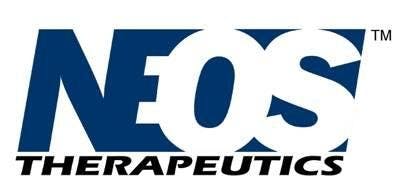Constantly on the hunt for biotechnology stocks, James E. Flynn has identified another potential winner. In a recent Form 3 filing with the Securities and Exchange Commission, Flynn’s fund, Deerfield Management, has disclosed ownership of Neos Therapeutics Inc (NASDAQ:NEOS) stock and warrants ahead of the company’s initial public offering (IPO). According to the filing, the fund holds 208,333 shares of class C preferred stock and warrants to purchase 104,166 Series C preferred shares, with an exercise price of $12.00. Flynn and Deerfield Management were shareholders of Neos Therapeutics before the company went public and owned 625,000 shares before the IPO.

First a quick word on why we track hedge fund activity. In 2014, equity hedge funds returned just 1.4%. In 2013, that figure was 11.3%, and in 2012, they returned just 4.8%. These are embarrassingly low figures compared to the S&P 500 ETF (SPY)’s 13.5% gain in 2014, 32.3% gain in 2013, and 16% gain in 2012. Does this mean that hedge fund managers are dumber than a bucket of rocks when it comes to picking stocks? The answer is definitely no. Our small-cap hedge fund strategy, which identifies the best small-cap stock picks of the best hedge fund managers returned 28.2% in 2014, 53.2% in 2013, and 33.3% in 2012, outperforming the market each year (it’s outperforming it so far in 2015 too).
What’s the reason for this discrepancy you may ask? The reason is simple: size. Hedge funds have gotten so large, they have to allocate the majority of their money into large-cap liquid stocks that are more efficiently priced. They are like mutual funds now. Consider Ray Dalio’s Bridgewater Associates, the largest in the industry with about $165 billion in AUM. It can’t allocate too much money into a small-cap stock as merely obtaining 2% exposure would really move the price. In fact, Dalio can’t even obtain 2% exposure to many small-cap stocks, even if he essentially owned the entire company, as they’re simply too small (or rather, his fund is too big). This is where we come in. Our research has shown that it is actually hedge funds’ small-cap picks that are their best performing ones and we have consistently identified the best picks of the best managers, returning 135% since the launch of our small-cap strategy compared to some 55% for the S&P 500 (see more
details).
Follow James E. Flynn's Deerfield Management
Based in Grand Prairie, TX, Neos Therapeutics Inc (NASDAQ:NEOS) was founded in 1994 and engages mainly in the development and marketing of medication used for the treatment of Attention Deficit Hyperactivity Disorder (ADHD). A secondary product manufactured by the company is Tussionex®, a product indicated for the relief of cough and upper respiratory symptoms. Neos Therapeutics has announced today that 4,800,000 shares of common stock will be offered at a price of $15.00 per unit, plus an additional 720,000 shares as over-allotment options. The shares started trading on NASDAQ earlier today and the offering is expected to close on July 28.
A huge gamble
The financial reports submitted by Neos Therapeutics Inc (NASDAQ:NEOS) for the years 2013 and 2014 shows losses of $19 and $20.8 million respectively. In 2014, revenues fell to $758,000 from the $1.04 million reported in the previous year. According to its balance sheet as of March 31, 2015, the company has $26.1 million cash holdings and total assets of $54.6 million. It is also important to note that the company faces a huge downside risk since its ADHD medication has not yet been approved by the Food and Drug Administration (FDA). In its S-1 filing with the SEC, Neos Therapeutics reports:
If the FDA does not conclude that our product candidates satisfy the requirements for the 505(b)(2) regulatory approval pathway, or if the requirements for approval of any of our product candidates under Section 505(b)(2) are not as we expect, the approval pathway for our product candidates will likely take significantly longer, cost significantly more and encounter significantly greater complications and risks than anticipated, and in any case may not be successful.
Disclosure: none.